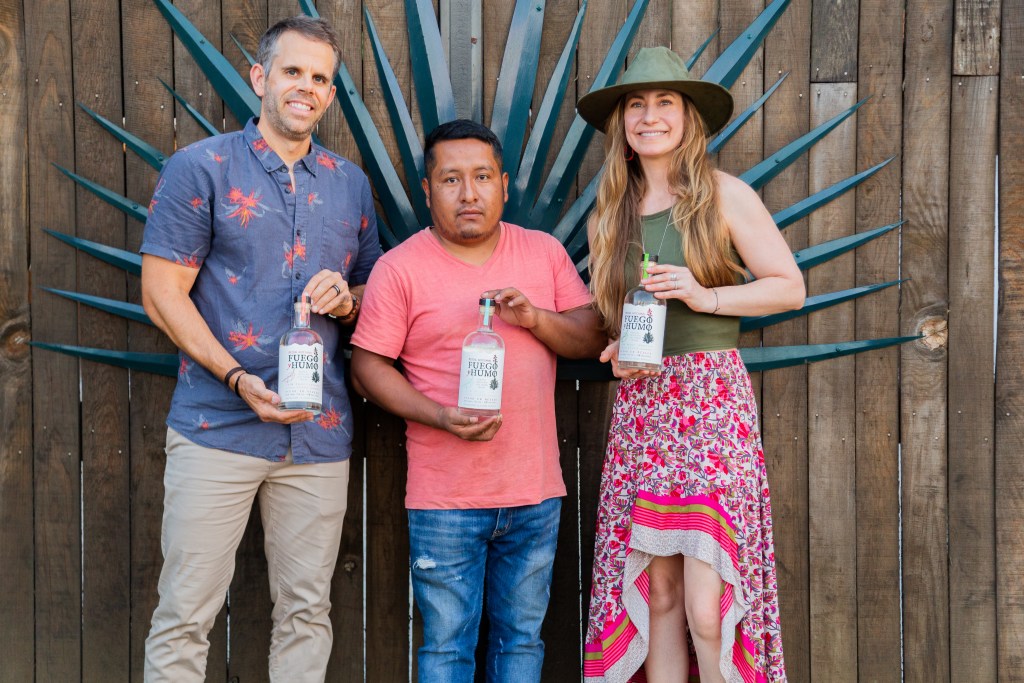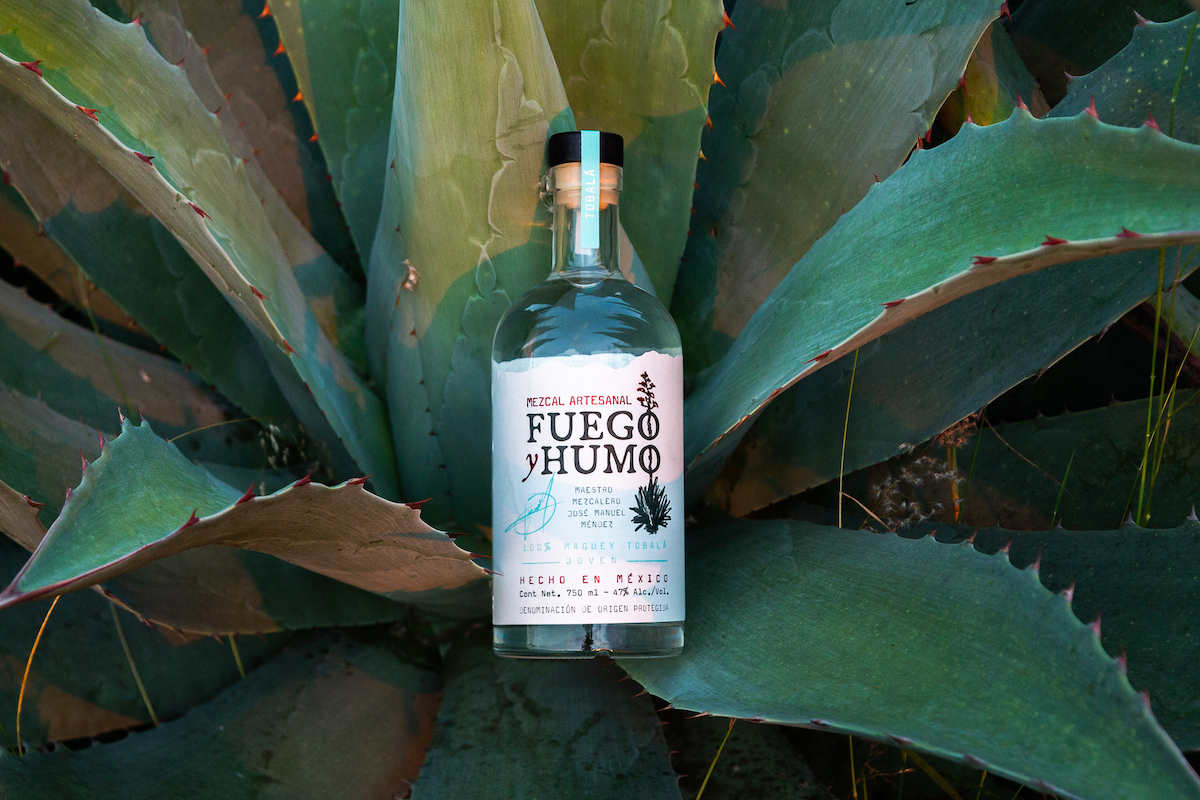Ask Elliott Reese what’s the one thing everyone should know about mezcal, and he answers, “That it’s not tequila; it’s honestly better than tequila. I know that’s subjective, but if you want an agave spirit — neat — you can’t beat mezcal.”

For some, those might be fighting words, but Reese knows of what he speaks. Earlier this year, he and his wife, Karen, launched the mezcal brand Fuego y Humo and are eager to share their love for this distilled spirit in Santa Barbara and beyond. After working with José Manuel Méndez, a third-generation mezcalero in Oaxaca, their artisanal brand is currently offering three varietals of mezcal and a terrific story.
Education about their product is one of the Reeses’ main goals, and they begin by making clear that tequila can only be made from one plant — the blue Weber agave. That, by necessity, limits what you can do with it. Mezcal can be made with any species of agave. So, think of it this way — would you want your only wine to be chardonnay, or are you happy we’ve got, oh, 60 different grape varietals in Santa Barbara alone?
“All you taste in mezcal is pure agave from nature and the hand of the maker,” Karen points out, adding that her conversion moment to mezcal was discovering how well-suited the high-end product was for straight sipping. Indeed, even 100 percent agave tequila, by Mexican law, is allowed to have up to one percent additives that can include coloring, flavoring, and texturizers.
Fuego y Humo contains no additives, on the other hand, so what you taste is the original plant. Their Espadín — the style of mezcal people are most likely to have tried — has that smoke; it’s in the name of the brand, of course, but more, a softness and richness, with caramel notes and a nuttiness. Their Wild Tepeztate is a different beast completely, earthy with a green vegetable core that makes it Elliott’s favorite.

The Reeses found Méndez via extensive research in Oaxaca. “It’s like wineries here, but multiply by 10, in very rural villages,” Karen explains. “The distilleries are in their homes, where they lived for generations.” They wanted a mezcalero who had not yet been importing to the U.S., but he also needed to be ready to do enough volume that they would be able to meet demand. Méndez was ready to take that step. “It was love at first sip,” Elliott recalls. “We had probably visited 20 mezcaleros, but I knew when we got there that anyone who knew mezcal would love this.”
Their mezcals truly express terroir — that Tepeztate is harvested wild and at about 25 years of maturity, capturing “all those seasons soaking up sun and drought and rain,” Elliott points out. Add to that the local water and local yeast, and each product is deliciously unique.
As the brand isn’t even six months old, for the foreseeable future Elliott is keeping his day job at a local company that sells IT equipment. Karen, who did digital marketing for CMC Rescue, left her job in 2021 so she could use her skills with social media and crafting user experiences for Fuego y Humo. They’ve got a toehold in some local restaurants like Augie’s (of course) and some retailers, but sales mostly come direct to consumers via their website.
“We are hoping to do more varieties from José,” Elliott says, considering the future, perhaps up to 10. “We would also love to feature different states to showcase the range of mezcals, maybe one from Pueblo or Michoacán.” No matter how it grows, Fuego y Humo will continue its work to educate people past the idea that mezcal is merely smoky tequila.
See fuegoyhumo.com.






You must be logged in to post a comment.